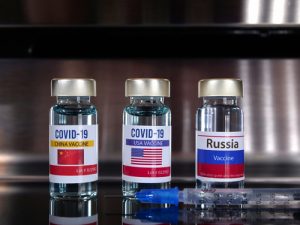
U.S. Sen. Cory Gardner (R-CO) urged the Federal Bureau of Investigation (FBI) and the Cybersecurity and Infrastructure Security Agency (CISA) to immediately pursue additional efforts to strengthen U.S. cybersecurity infrastructure against threats from Russia and China during the COVID-19 pandemic.
“Recently the United Kingdom’s National Cyber Security Centre (NCSC) released a report outlining Russian interference in COVID-19 vaccine development,” including ongoing efforts to steal intellectual property and disrupt critical COVID-19 research, wrote Sen. Gardner, chairman of the U.S. Senate Foreign Relations Subcommittee on East Asia, the Pacific, and International Cybersecurity Policy, in two July 16 letters sent to FBI Director Christopher Wray and CISA Director Christopher Krebs.
Sen. Gardner pointed out that the report included a warning that Russian espionage-linked APT29 will likely continue to target organizations involved in COVID-19 vaccine research and development related to the pandemic.
And while the CISA in May announced concerns about threats from Chinese government-backed hackers working to disrupt COVID-19 research, Sen. Gardner wrote that the UK’s announcement of “similar Russian interference, while unsurprising, is deeply concerning and yet another example of unacceptable subversive activity.”
Sen. Gardner requested that both agencies redouble their cooperative efforts with each other and with America’s international partners to protect against such threats, and urged CISA to work directly with potentially impacted U.S. entities engaged in COVID-19 research that may have suffered breaches related to either Russian or Chinese state-based hacks.
“Without adequate federal support, these attacks pose serious risks to our national critical infrastructure in the healthcare sector and beyond,” wrote the senator.
The lawmaker also noted that the successful pursuit of a COVID-19 vaccine will benefit the entire world, not just the United States. “Ensuring proper assistance to U.S. universities, laboratories and our international partners in these efforts is critical to making the world a safer place,” according to his letter.



